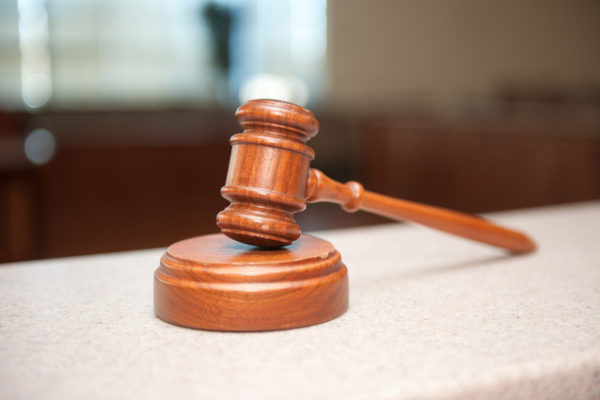A Long Road to a $347 Million Verdict
Over six years ago, Registered Nurse Angela Ruckh took a job with La Vie Health Care Centers, Inc., a healthcare services company headquartered in Tampa, Florida. What she saw working in La Vie’s government funded nursing homes was appalling. In her position as a Minimum Data Set Coordinator – responsible for ensuring patient and billing documentation was sufficient – Ms. Ruckh witnessed a perfect storm of Medicare and Medicaid billing fraud and grievously inadequate and neglectful treatment of patients. Ms. Ruckh was employed at two separate La Vie nursing facilities in Perry and Green Cove Springs, Florida for approximately six months before she filed a qui tam False Claims Act complaint alleging pervasive fraud against the United States and its taxpayers.
The long journey of Ms. Ruckh’s lawsuit reached a federal jury in Tampa, Florida last week and the jury found for Ms. Ruckh, the United States and the State of Florida – returning a $115 million verdict against the defendants, La Vie, its parent companies and specific nursing homes. Then, yesterday, March 1, 2017, U.S. District Judge Steven D. Merryday tripled the jury’s verdict as mandated by the treble damages provision of the False Claims Act by entering an order against the defendants for a total of $347 million. As the United States did not intervene in this case, Ms. Ruckh and her attorneys bravely pursued this case themselves on behalf of the United States and the State of Florida, which is permitted under the False Claims Act. Because the government did not intervene in the case, Ms. Ruckh will be entitled to 25-30 percent of the government’s $347 million verdict. Judge Merryday’s Order further allows Ms. Ruckh to pursue costs, expenses and all attorney’s fees incurred in the six-year case and jury trial. Ms. Ruckh’s costs are payable by the defendants as mandated by the False Claims Act.
“Upcoding” and Medicare and Medicaid Fraud
In her employment, Ms. Ruckh witnessed systemic “upcoding” primarily by way of La Vie’s manipulation of patient’s Resource Utilization Groups or “RUG” levels. Resource Utilization Groups (“RUG’s”) are groups into which a nursing home resident is classified based on functional status and anticipated use of services and resources. Essentially, a higher RUG level indicates a patient needing a higher level of care, which in turn results in a higher reimbursement payment to the provider. To encourage staff to upcode RUG levels, La Vie offered cash bonuses to inflate RUG levels. One nurse reported that she was paid over $15,000 per year, in cash, based solely on her ability to bill RUG levels higher than La Vie’s allocated “RUG budget.”
However, the La Vie’s rampant fraud was not limited to RUG level upcoding but included and extended to multiple areas of false metrics and reporting – all designed to inflate government healthcare program payments to the facilities. For instance, La Vie routinely inflated the level of assistance patients needed in performance of their activities of daily living or “ADL’s.” A high level of ADL assistance further boosts the RUG score and thus the reimbursement level. For instance, patients needing the highest level of ADL assistance would be coded in a RUG level corresponding to a $633.24 payment to the facility per day. Ms. Ruckh alleged that patients were often coded at this high level but did not require nor receive the corresponding level of care.
La Vie also routinely up-coded the levels of physical therapy provided to patients by billing Medicare for unnecessary rehabilitative therapy and manipulated their reporting of therapy minutes to make it appear that Medicare residents were receiving more therapy than was actually provided. For example, simply to bill Medicare at the highest allowable level, La Vie provided hours of medically unnecessary occupational therapy to a patient receiving hospice care despite the fact the patient could hardly walk, did not want therapy and elected the comfort and dignity that is intended when a patient elects end-of-life hospice care. Further, La Vie often billed patients at the highest level of therapy — corresponding to 720 minutes of therapy per week, when in fact patients received far less actual therapy.
A Courageous Stand Against Fraud and Abuse
Frohsin Barger & Walthall would like to thank and congratulate Ms. Ruckh and her attorneys of The Cohen Law Group of Tampa, Florida; Kellog, Huber, Hansen, Todd, Evans & Figel P.L.L.C. of Washington D.C. and Delaney Kester LLP of Boston, Massachusetts on the success of this case. Ms. Ruckh and her courageous counsel pursued this case despite the government’s lack of intervention and took the defendants all the way to a jury trial, which is a rare occurrence in False Claims Act litigation. Considering the substantial adversity faced by Ms. Ruckh and her counsel, the $347 million verdict – of which Ms. Ruckh will receive 25-30 percent – is surely a welcome reward. Further, the $225 to $260 million dollars that will be returned to the United States and the State of Florida due to Ms. Ruckh and her attorneys’ efforts is a shining example of how the United States, the States and the taxpayers can benefit by incentivizing private citizens and their attorneys through the qui tam provisions of the False Claims Act.






Talk with an Expert
Frohsin Barger & Walthall
Call 205.933.4006 or
Send us a Message